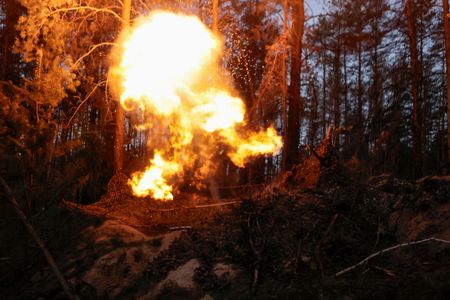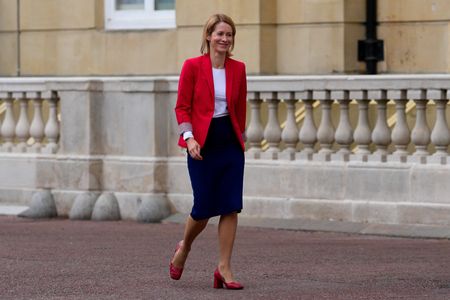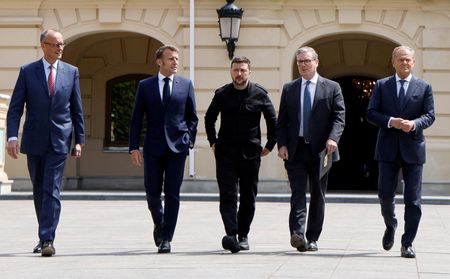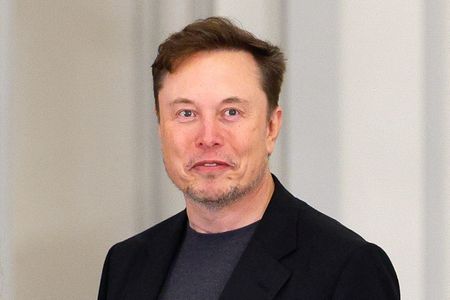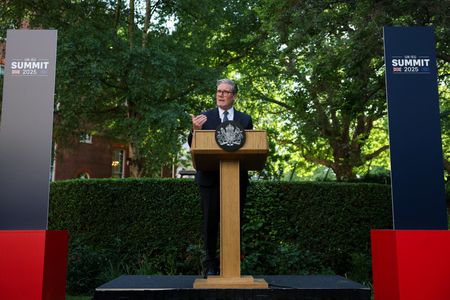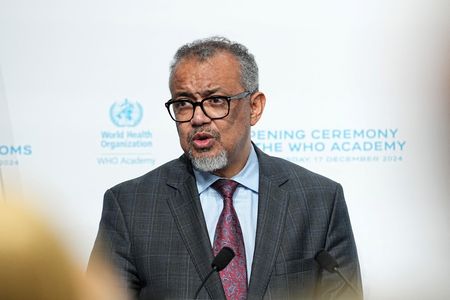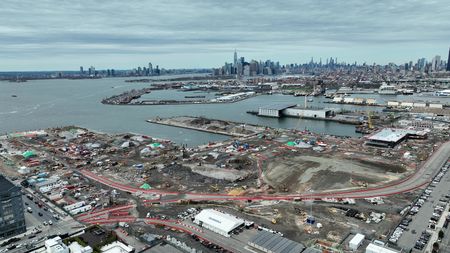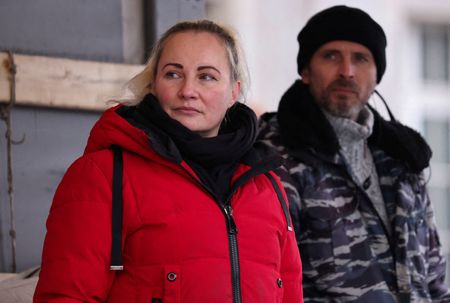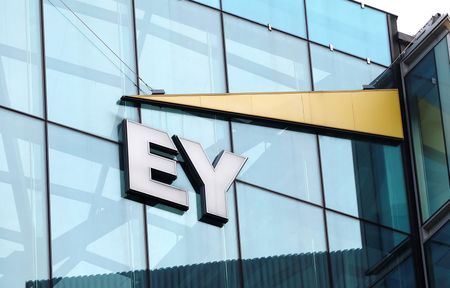By Andrew Gray and Sam Tabahriti
BRUSSELS/LONDON (Reuters) -The EU and Britain announced new sanctions against Russia on Tuesday without waiting for the United States to join them, a day after President Donald Trump’s phone call with Vladimir Putin failed to elicit a promise for a ceasefire in Ukraine.
London and Brussels said their new measures would zero in on Moscow’s “shadow fleet” of oil tankers and financial companies that have helped it avoid the impact of other sanctions imposed over the war.
“Sanctions matter, and I am grateful to everyone who makes them more tangible for the perpetrators of the war,” Ukraine’s President Volodymyr Zelenskiy wrote on Telegram.
The sanctions were unveiled without an immediate announcement of corresponding steps from Washington, despite intense public lobbying from leaders of European countries for the Trump administration to join them.
“We have repeatedly made it clear that we expect one thing from Russia – an immediate ceasefire without preconditions,” German Foreign Minister Johann Wadephul said on the sidelines of a meeting with his EU counterparts in Brussels.
As Russia had not accepted a ceasefire, “we will have to react,” he said. “We also expect our U.S. allies not to tolerate this.”
Trump told reporters on Tuesday that he was deliberating over what actions to take, but gave no further detail.
“We’re looking at a lot of things, but we’ll see,” Trump said as he left a meeting on Capitol Hill in Washington.
Russia and Ukraine held their first direct talks in more than three years on Friday at Trump’s behest, but failed to agree a truce after Moscow presented conditions that a member of the Ukrainian delegation called “non-starters”.
Ukraine says it is ready for an immediate ceasefire proposed by Trump, while Russia says it wants talks first. The Europeans say this is proof that Putin, who started the war by invading his neighbour in 2022, is not prepared to end it.
European Commission President Ursula von der Leyen said she had spoken to Zelenskiy and that a further package of sanctions was being prepared.
“It’s time to intensify the pressure on Russia to bring about the ceasefire,” she wrote on X.
‘NO TO ULTIMATUMS’
Russian Foreign Ministry spokeswoman Maria Zakharova told reporters that Russia would never bow to what she called ultimatums.
Putin, after his call with Trump on Monday, said Moscow was ready to work with Ukraine on a memorandum about a future peace accord. “Now, accordingly, the ball is in Kyiv’s court,” Zakharova said.
Europeans have been working hard to persuade the Trump administration to join them in imposing sanctions. The leaders of Britain, France, Germany and Poland jointly travelled to Kyiv earlier this month and were filmed speaking to Trump on speakerphone with Zelenskiy.
Several European leaders phoned Trump again on the eve of his call with Putin, urging him to join them in imposing new sanctions if Russia rejected a ceasefire.
Brussels and London both signaled they have not given up hope of persuading Washington to act.
“Let us push Vladimir Putin to put an end to his imperialist fantasy,” France’s Foreign Minister Jean-Noel Barrot said.
Britain’s Foreign Minister David Lammy said “delaying peace efforts will only redouble our resolve to help Ukraine to defend itself and use our sanctions to restrict Putin’s war machine”.
The latest sanctions are aimed mainly at cracking down on a shipping fleet that Russia uses to export oil, circumventing a $60 a barrel price cap imposed by the G7 group of industrialised countries to limit Russia’s income.
Britain and the EU said they would also work to lower the cap, which imposes far less of a discount on Russian oil now that global prices have fallen this year.
Trump said on Monday that Russia and Ukraine were ready to start negotiations. Putin said the process would take time.
(Reporting by Julia Payne, Bart Meijer, Sabine Siebold, Lili Bayer and Sam Tabahriti; Additional reporting by John IrishWriting by Ingrid Melander and Charlie DevereuxEditing by Peter Graff, Ros Russell, Alexandra Hudson)

